
I’ve seen the future, and it’s bleak – at least according to these ten sci-fi authors. Alien invasions. Climate change. Malevolent AI. Dead bees. Any of one of these things could potentially cause the extinction of humanity! Particularly that last one – I had no idea how important those little guys are! When it comes to building a better tomorrow, these science fiction writers didn’t get the memo. Instead, they poured their hearts out penning the 10 saddest sci-fi books of all time for your reading pleasure. Well, not pleasure exactly. Catharsis? Emotional release? Ugly crying spell? Each is a scientifically accurate description of what you’ll experience reading these novels.
Slaughterhouse Five

Kurt Vonnegut’s Slaughterhouse Five was inspired by a lesser known World War 2 tragedy: the firebombing of Dresden. While imprisoned as a POW in the rural German town, Vonnegut survived the Allied bombardment of Dresden – which claimed thousands of civilian lives. The senseless violence served as the existential thesis of this novel: horrible things happen, life moves on. Punctuated with the bleak mantra “and so it goes,” Slaughterhouse Five is a litany of sad happenings and existential angst told through the eyes of an American soldier who lives outside of time. Due to extraterrestrial meddling, Billy Pilgrim is able to move freely through the world in four dimensions, and can now travel through time to different points of his life. It’s a novel about the inherit meaninglessness of existence, the inevitably of death, and our slipshod efforts to make the best of things regardless.
The Road
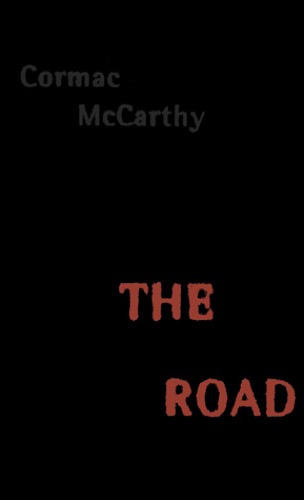
Is it sci-fi? Post-apocalyptic fiction? Dystopian? Whatever your literary analysis of Cormac McCarthy’s The Road is, I think we can all agree that it’s depressing as hell. Taking place on a slowly dying Earth, the story follows a nameless father and son attempting to hold on until the bitter end. There is no food. No safety. No hope save for “the fire” that the father repeatedly tells the boy that they are responsible for carrying inside their hearts. While scrounging in the dirt and fighting off cannibals, that fire is nearly extinguished many times – but somehow keeps on burning. How do you keep on keeping on when the world runs away without you? You cling to the ones you love for the little time you have left. If you’re looking for a double shot of depresso espresso, check out the film adaptation with Viggo Mortensen. Your heart will never heal.
Childhood’s End

Childhood’s End is one of the most devastating works that sci-fi sad sack Arthur C. Clarke has ever penned – and trust me, he wrote a lot of downers. While his short story The Star is enough to break the faith of a Dungeons and Dragons Paladin, nothing could can prepare you for the emotional devastation that is this novel. A hyper-advanced species has overtaken the world in a peaceful alien invasion, and has promised to rid humanity of violence and want. The self-described “Overlords” free mankind from war and disease, and then culture and art for good measure. What starts as a budding utopia soon curdles into total tragedy as humanity realizes that it’s too late. Once started, the Overlords’ work cannot be stopped. All that’s left to do is sit back and watch them rob us of everything that makes us, well, us. It’s essentially the literary version of The End of Evangelion – we humans evolves into something far greater, and leave ourselves behind in the process.
The Left Hand of Darkness

Written as part of her Hainish Cycle, Ursula K. Le Guin’s The Left Hand of Darkness is the story of diplomat Genly Ai and his attempt to bridge the cultural divide with an alien world. As far as post-human worlds go, the ice planet Gethen is especially unique. Its population is ambisexual, only acquiring sexual characteristics during a brief monthly mating period called kemmer. As a result, human concepts like war are totally alien to Gethen’s society, just as gender-fluidity is alien to Genly’s. The tragedy of the novel comes from Genly’s relationship with Estraven, a Gethenian politician fallen from grace. On the run from the powers that be due to Genly’s cultural bungling, the pair are forced to flee from society and trek across the Gethenian wilderness – which is all mountains, ice floes, and stars. While they briefly find safety and connection the frozen wasteland, their budding friendship is cut short when the authorities finally catch up. Genly may have succeeded in his diplomatic mission, but was it worth the cost?
Never Let Me Go
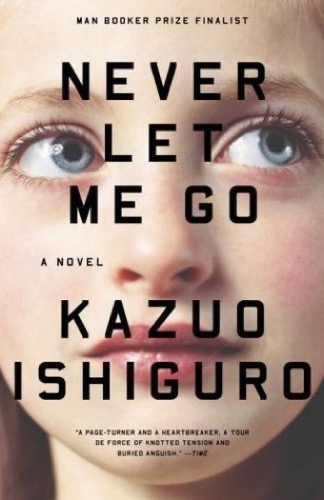
I can’t get into the details of Never Let Me Go‘s brutally sad plot without getting into massive spoilers, but trust me, this novel hits like a freight train of emotions – a head on collision with Thomas the Tank Engine going through the worst breakup of his life. It’s the tale of three thirty-somethings remembering their time at Hailsham, an idyllic boarding school in the English countryside. Tutored in art and told not to ask questions about the outside world, the children of Hailsham live a peaceful and sheltered existence. The dystopian vibes creep in when the children begin to question where their lives will lead, to which their caretakers respond “not very far”. Ever seen the anime The Promised Neverland? The one where children are grown as farm animals? Similar vibe.
The Sparrow
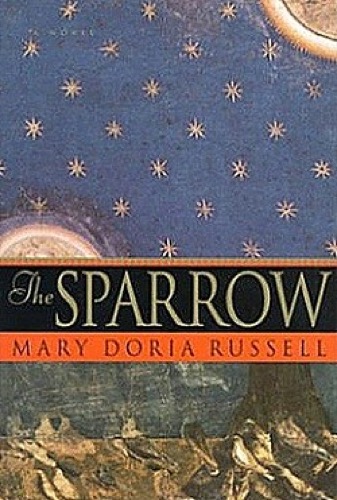
Like Biblical parable of old, Mary Doria Russell’s The Sparrow is a cautionary tale about good intentions and the Hell-paths they pave. After Earth picks up a radio transmission from a faraway planet, a group of astronaut missionaries are sent to make contact. On the planet Rakhat, the missionaries meet with two separate alien species – Jana’ata and the Runa – who are predator and prey to one another. Through a series of cultural misunderstandings, the missionaries unwittingly orchestrate a series of tragedies that leave all parties forever devastated. Ultimately a criticism of colonialism, The Sparrow plays out the age old practice’s disastrous consequences to their inevitably bitter end. It never worked on our planet, why would it work on another?
The Parable of The Sower

The Parable of The Sower by Octavia Butler is the story of a young woman’s experience of the end of the world. After climate change causes near total societal collapse, Lauren Olamina is forced to flee from her walled-up suburban community after a terrible fire. On the run across a burned out nation with a group of haggard youths, Lauren copes in a time tested way: by creating a new religion. Centered around the concept that “God is change” Lauren spreads a gospel of hope to a hopeless world. While not crushingly depressing, this novel is a melancholy meditation about the inherent transience of life. Nothing lasts forever, so why not lean into it?
Neuromancer
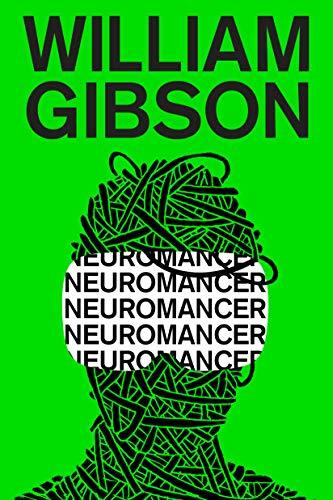
For a book as devoid of emotion as William Gibson’s Neuromancer, the seminal cyberpunk novel is a seriously sad affair. The plot follows washed up hacker Case, who is hired by a shadowy military official to pull off a digital heist. As Case navigates his hi-tech, low-life world, the sad reality of existence becomes apparent. The pain of Neuromancer comes from its crushing sense of aloneness and disconnectedness. Despite technology allowing for faster than ever communication, humanity has only become more isolated behind digital walls. The last line of novel sums up the lonely mood beautifully – I won’t spoil it, but it’s sure to fry your emotional mainframe.
Flowers For Algernon
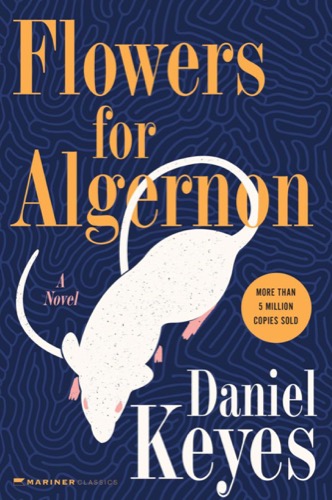
Like the name of that one Beach House album, Daniel Keyes’ Flowers For Algernon is a sad fudge sunday with a Depression Cherry on top. It’s the story of Charlie Gordon, a man with an IQ of 68, who is selected to receive an experimental medical procedure to increase his intelligence. The procedure has been successfully performed on animals, including a now-genius laboratory mouse named Algernon. Charlie’s IQ triples, but when Algernon begins to experience a rapid mental decline, Charlie realizes that the same future awaits him. It’s a devastating novel about a man who ascends to the heights of human intellect, only to feel his mind slowly slipping away.
Death’s End
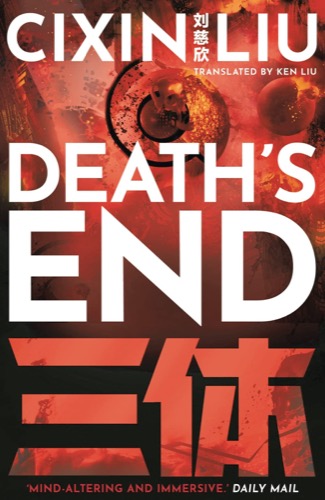
The final installment of Cixin Liu’s Remembrance of Earth’s Past series, Death End is serves as the culmination of humanity’s war with the invading Trisolarians. After sending out an interstellar broadcast that will ensure the destruction of both species, humanity attempts to change its doomed fate through a series of technological advancements. Taking place over countless generations, the novel details humanity’s staggering scientific achievements – which all amount to nothing in the end. Spoiler alert, the novel culminates in the total destruction of the Solar System. I’m still haunted by the way our world ends, not with a whimper, but with a howl of abject terror. In a universe marred by the aftermath of intergalactic war, the few survivors don’t exactly have a bright future ahead of them either.
Have a tip we should know? [email protected]







